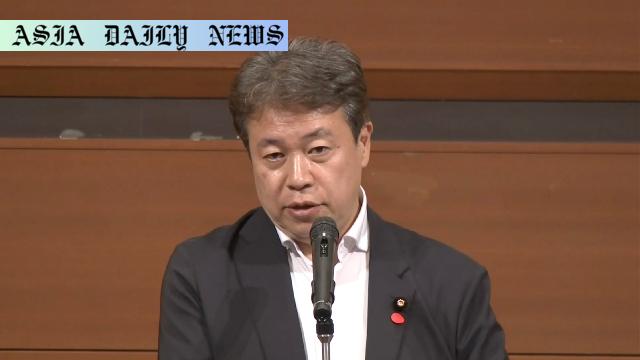Earthquake: LDP lawmaker quits over gaffe on Noto Peninsula disaster.

Chair Resigns Following Earthquake Gaffe
The recent resignation of Tsuruho Yosuke, the chairman of the Upper House Budget Committee from Japan’s ruling Liberal Democratic Party (LDP), has sparked significant public and political discourse. Tsuruho stepped down from his post following a controversial remark he made during an election campaign speech, which many deemed insensitive to the victims of the powerful earthquake that struck the Noto Peninsula in central Japan last year.
The Controversial Remark
During a campaign event, Tsuruho attempted to emphasize the need for two-region lifestyles, a policy proposal encouraging citizens to live and work across multiple regions. However, in doing so, he remarked, “Fortunately, there was an earthquake in the Noto Peninsula, which allows Wajima residents to get their residence certificates in Kanazawa City,” referring to the evacuation measures taken after the natural disaster. This statement, intended to highlight disaster-induced resilience, backfired as it was perceived as highly insensitive to those affected by the disaster.
Apology and Retraction
Following immediate backlash from both ruling and opposition party members, alongside criticism from residents of the Noto Peninsula, Tsuruho publicly apologized the next day. He expressed regret for his lack of consideration for the victims and officially retracted his comment. However, the criticisms did not abate, and the political pressure ultimately led Tsuruho to resign to assume responsibility for his remarks.
Sociopolitical Implications of the Incident
Tsuruho’s resignation highlights the intricate balance between political communication and sensitivity in disaster-stricken regions. While political figures often aim to inspire through their speeches, missteps can lead to public outrage, particularly when addressing topics as sensitive as natural disasters. The incident underscores Japan’s cultural emphasis on respect for disaster victims and the political consequences of failing to comply with such deeply rooted sentiments. Observers note that this episode reflects the high accountability standards expected of politicians in Japan, as Tsuruho faced immense criticism not only from his political peers but also from the public he sought to serve.
Selection of a Successor
The resignation of Tsuruho has necessitated the selection of a new chair for the Upper House Budget Committee. This decision will likely take place during an extraordinary session of the Diet after the Upper House elections. The responsibility of succeeding Tsuruho comes with significant challenges, as the political environment remains sensitive to controversial rhetoric and public expectations for accountability loom high.
Concluding Thoughts
Overall, the incident serves as a vital reminder of the complexities involved in political communication, particularly in times of crisis. It also underscores the need for empathy and accountability in governance. As a nation that places immense importance on social harmony, Japan’s political climate frequently demands adherence to these values, and Tsuruho’s case is no exception to this cultural and political expectation.
Commentary
Reflecting on Accountability in Politics
Tsuruho Yosuke’s resignation following his controversial remark highlights the profound impact words can have in the political arena. This incident serves as a stark reminder that public figures bear an immense responsibility to communicate not only effectively but also empathetically. In a globalized world where every word spoken can reverberate widely, the balance of inspiring confidence while maintaining sensitivity is a delicate one.
The Cultural Context of Sensitivity
In Japan, cultural values place a significant emphasis on showing respect and understanding towards those who have faced adversity. This is especially important when addressing events such as earthquakes, which have left deep scars on the nation’s history. Tsuruho’s remark appeared to deviate from these cultural expectations, inadvertently causing distress among victims and their families. The subsequent outcry reflects a societal expectation of empathy from leadership figures.
The Broader Political Implications
Tsuruho’s resignation illustrates the evolving relationship between politicians and public accountability. In an era where constituents demand greater transparency and ethical standards, politicians are under constant scrutiny. Actions, and missteps alike, are amplified in the digital age, making the need for thoughtful communication essential. This incident also demonstrates the pressures within Japan’s political system, where accountability transcends party affiliations and calls for uniform ethical conduct.
Learning Lessons Moving Forward
Ultimately, this incident is not just a cautionary tale for politicians in Japan but also for public officials globally. It underscores the importance of empathy in leadership and highlights the risks of overlooking cultural sensitivities. Moving forward, public figures must prioritize thoughtful communication that aligns with the values and expectations of the citizens they serve. Only by building trust and understanding can leaders truly inspire and enact meaningful change.


